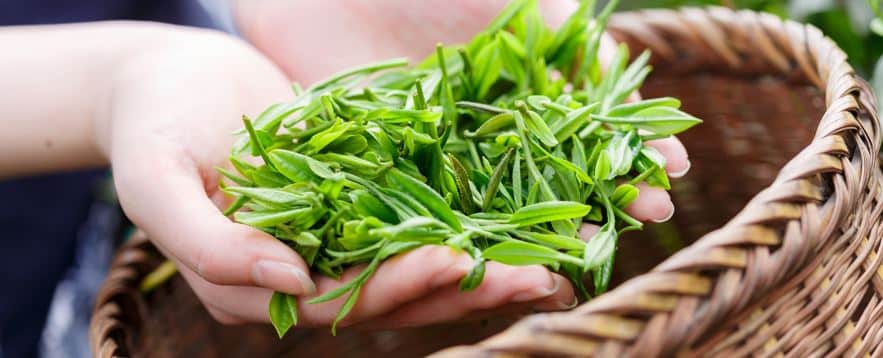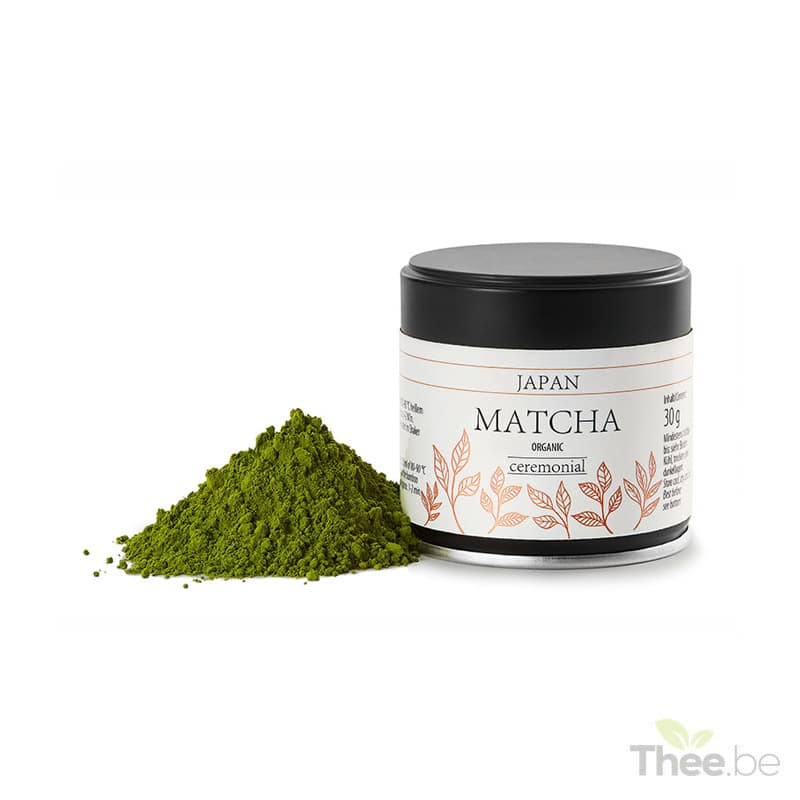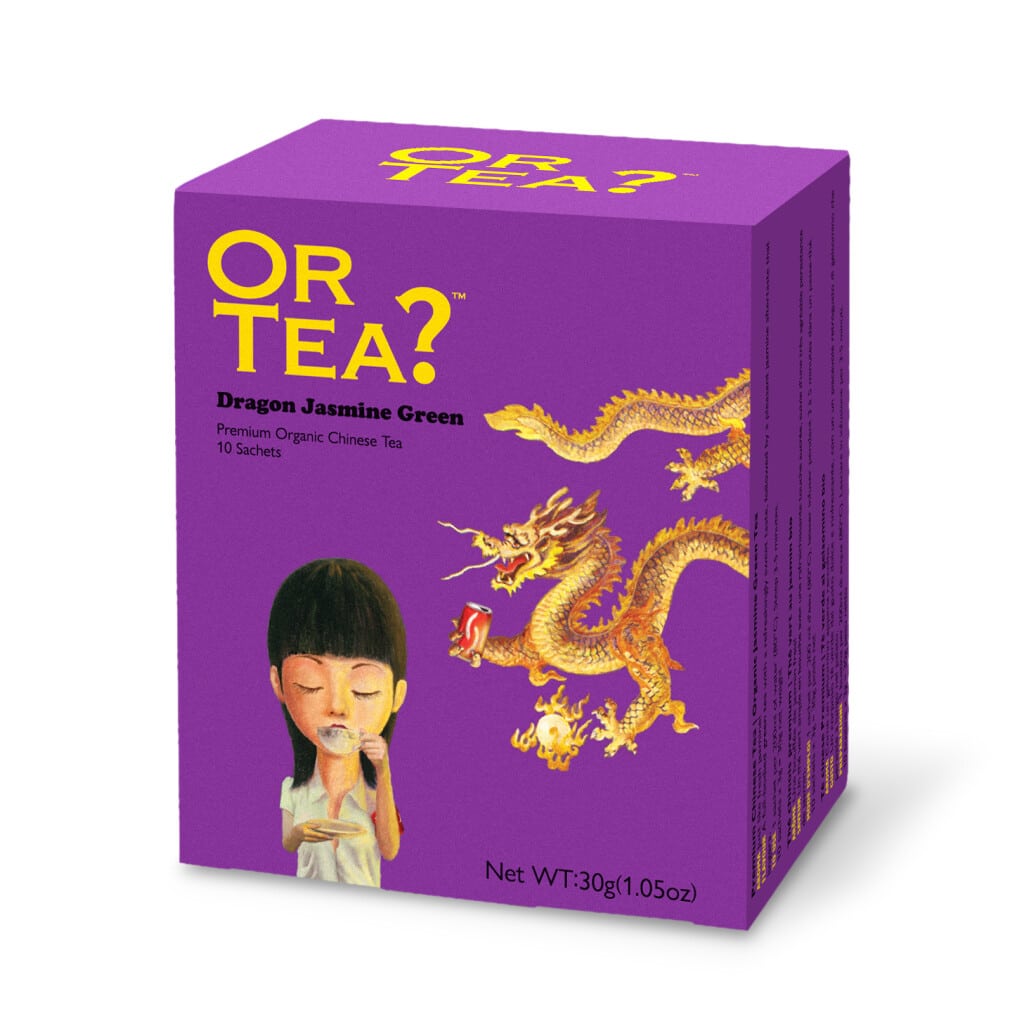“Is your tea organic?” is a question we’re regularly asked. Organic products are becoming more and more popular, but what exactly does ‘organic’ mean? In this blog, you’ll discover everything about ‘organic,’ organic certification, and whether organic tea is truly better than non-organic tea.
What does organic mean?
Organic products are produced according to the regulations of organic farming in Europe. The aim of these regulations is to protect the environment, maintain biodiversity, and give consumers more confidence in organic products. These regulations prohibit the use of GMOs (genetically modified organisms) and ionizing radiation and limit the use of synthetic fertilizers, herbicides, and pesticides.
The use of pesticides is not banned but is severely restricted. For example, in organic farming, synthetic pesticides cannot be used, but natural pesticides can. These are pesticides of natural origin. Every substance (fertilizer, control agent, pesticide…) used in organic agriculture must be approved in advance by the European Commission.
Organic certification of tea
A product needs an organic certificate to be sold as ‘organic.’ This certificate is issued by a control body. Applying for and maintaining an organic certificate is an expensive and time-consuming process that includes many inspections, rules, and procedures. A product can also only be called organic if at least 95% of its ingredients are organic. The remaining 5% must meet strict conditions.
The organic legislation applies to the entire production chain, from production and processing to delivery to the end consumer. This means that all organic products in the EU must comply with strict rules from farm to fork, or in the case of tea, from tea farmer to teacup. If one step in the whole chain does not comply with the organic legislation, the final product is no longer organic. Every step in the process must be individually certified, from farmer to online sales point. Rules can also change. For example, due to changing regulations, a product may be organic one year but not the next, even though its content has not changed.
An organic certificate is therefore crucial for a product to be considered organic. Thus, a product can be perfectly organically grown, but without organic certification, it cannot be called organic. You can recognize organic products by the green organic label.
Is organic tea necessarily better than non-organic tea?
Many people choose organic very consciously. There are many different reasons why people choose organic, such as impact on the environment, quality, taste, to support organic farmers, ideology… However, the organic label says nothing about the quality of the tea, only about the production method used. Organic tea is not necessarily tastier or better than non-organic tea.
Whether a tea is organic or not starts with the tea farmer’s choice to make their plantation organic or not. Even when the farmer works in an organic way, they may still find the certification not useful. A small farmer who sells high-quality tea that always sells out quickly will not have much motivation to obtain an organic certificate. A certificate causes more work and higher costs, while the tea itself already sells well. Another farmer, for instance, produces tea of average quality from lower-altitude tea fields in a less popular terroir. This tea is less popular and sells less well. This farmer has motivation to obtain an organic certificate. They can ask for a higher price for organic tea, and consumers have more confidence in the tea because it is organic. These two examples provide more insight into the motivation to make tea fields organic or not.
There is currently not much scientific research that specifically compares non-organic tea with organic tea. It also depends on what you mean by ‘better.’ Better for the environment, better for your body, better for the farmers, better taste… Research will have to determine this. The question of whether organic tea tastes better cannot currently be answered unequivocally.
Our organic teas
Some of our teas are organically grown, but applying for, obtaining, and maintaining ORGANIC certification for these teas is not simple. It would involve a lot of administration and extra costs. We prefer to focus on quality teas and excellent service. We also only work with reliable suppliers.
The only teas that were fully organic certified were the AMBAR tea line. However, due to the new, stricter organic legislation, AMBAR teas are sadly no longer organic since 2023. The ingredients are still the same, but the organic regulations were adjusted so that some ingredients are no longer considered organic by certification. We continue to strive to keep all ingredients as pure and organic as possible, but the AMBAR tea line is no longer (completely) organic.
Still certified are some of our Matchas (including the regular organic and the ceremonial organic variant) and a large part of the Or Tea? teabags.
So there’s a lot behind the green organic label, production methods, regulations, costs, inspections, administration… The organic story is beautiful, but thanks to the many rules, also very complex. There is no definitive answer to what is better. The answer is very personal and mainly depends on the reason why you want to buy organic tea.







